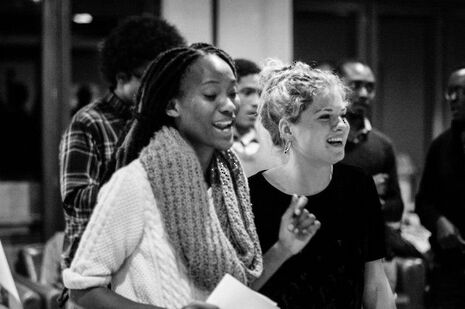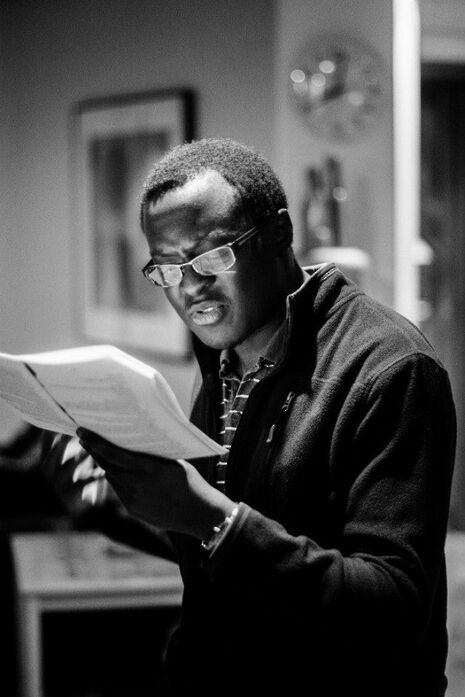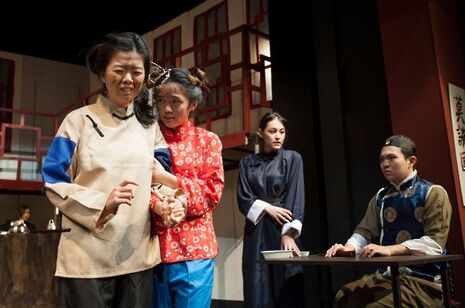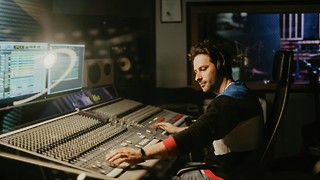Tomorrow and tomorrow and tomorrow: we must keep creating BME space in student theatre
In the second of her articles looking at race in Cambridge theatre, Naomi Obeng explains how the short collective memory of students erases the all too infrequent moments for students of colour in the spotlight

In last week’s article, I spoke to actor, campaigner and Cambridge graduate Stephanie Street, highlighting roots of diversity issues in professional theatre and ways that inequality has been tackled. The London stage has obvious and historical links to Cambridge theatre, a path that Stephanie calls “a well-oiled one”. It’s seen as the pinnacle for many aspiring actors, with boards tread by the matriculated names we hear so often: Sir Ian McKellen, Emma Thompson, Stephen Fry, Hugh Laurie, Tom Hiddleston, Eddie Redmayne… the list goes on. You can’t get away from this legacy (which is literally written on an ADC wall) and there are several reasons that it’s difficult to claim a space in this overwhelming canon if you are not a white actor.
“It’s absolutely unforgivable that BME actors who have enthusiasm and talent, are discouraged from even auditioning because race feels like an obstacle”
Of course it would be wrong to talk of Cambridge theatre as one unchanging entity – but we have such a short collective memory of its details that it might as well be. The shows that freshers watch from their first Michaelmas onwards can easily become the extent of ‘what is possible’. I remember a conversation with a producer a year below me who claimed that there weren’t really people of colour acting in the university, and that it was a real shame. Thinking back to Sophiatown, the ADC Week 3 main show in my first term which had an almost entirely black cast, I told him that his impression was untrue. But Sophiatown was, already, beyond his time. Absence of persistent BME representation bred the illusion of historical continuity of that absence, despite the fact that representation has more recently come in waves.
The only impressions of the Cambridge scene that last beyond the length of a degree are then those that arise by default. The fact is that illustrious alumni have taken this path, and these highest of standards are what is lived up to – even if they are outdated, exclusive and alienating.

It’s not wrong, however, that numbers of BME actors auditioning for roles are shocking. The Vagina Monologues last term had only 5 or 6 BME women out of 60+ auditioning. Two of them made it into the production. It’s common for even small Corpus shows to have no actors of colour audition unless they are specifically required. For technical roles, the numbers seem better, but the written applications that these necessitate are a different matter.
“I feel like there's no chance I'll get picked because I'm not in the 'inner white English student ADC circle”
The crucial thing to notice is that despite a general dearth in BME people auditioning for ‘standard’ shows, roles in Teahouse and the upcoming BME Macbeth, which asked specifically for BME applicants, were filled. BME actors clearly exist. They are willing and they are talented. But a fundamental sense of inaccessibility for many students of colour prevails. This is a situation that Cara Fung, a second year actor in Michaelmas’ Teahouse, explained. “I sometimes feel like there’s no point in auditioning for ADC main shows. I feel like there’s no chance I’ll get picked because I’m not in the ‘inner white English student ADC circle’. I’m often put off auditioning for musicals, especially at the ADC, because the same group of students get picked for every single show and it’s almost impossible to break into the musical theatre circle as well.”
It’s absolutely unforgivable that BME actors who have enthusiasm and talent, are discouraged from even auditioning because race feels like an obstacle. It is not a level playing field and it’s everyone’s business. Worse still, this sounds all too similar to what Stephanie Street told me about her experience of Cambridge theatre twenty years ago.
We also must consider how the plays that are programmed perpetuate inaccessibility, and diminished interest from BME students. The Cambridge path to London theatre, outlined last week, seems to me best understood as a loop. Part of the feedback of this loop is the trend of plays that have recently been in the West End or on Broadway frequently turning up on our Cambridge shores anew.
There’s money for rights, and there are people who have gone to see these plays performed. Last term we nearly had The Flick before The National Theatre did. Are BME students any better off for our scene modelling itself on an industry that has a whole host of diversity problems? An industry in which Stephanie Street had to work not to be ‘just an Asian actress’. “I had no idea what that meant at the time,” she told me, “but I have such an abundantly clear idea now. It wasn’t my choice to make unfortunately.”

It’s not just about putting on plays that target BME actors for BME roles either. As Cara puts it: “While I’m very grateful for productions like Teahouse and M Butterfly which have allowed me to play great Asian roles, it’d be nice to be cast in more ADC/Corpus plays that aren’t necessarily ‘Asian roles’. It’d be nice to know I’m not just ‘good at acting for an Asian’, but that I’m just good at acting, full stop.” Again: not her choice to make, unfortunately.
But students here have the benefit of being the change-makers, the casters, the deciders and directors. So who but us can listen to the problems and find ways to break the barriers? From all I’ve heard and seen, these barriers exist because of lack of awareness, understanding, and accountability, rather than maliciousness or implicit racism on behalf of students. It is possible to make a lasting change. But, as I will conclude next week, this requires student action targeting individual problems. Hope-filled words about change just won’t cut it any more – and they didn’t twenty years ago either
 News / Colleges charge different rents for the same Castle Street accommodation2 March 2026
News / Colleges charge different rents for the same Castle Street accommodation2 March 2026 News / King’s hosts open iftar for Ramadan3 March 2026
News / King’s hosts open iftar for Ramadan3 March 2026 Theatre / Lunatics and leisure centres 4 March 2026
Theatre / Lunatics and leisure centres 4 March 2026 News / Angela Merkel among Cambridge honorary degree nominees27 February 2026
News / Angela Merkel among Cambridge honorary degree nominees27 February 2026 News / Private school teacher who lied about Cambridge degree barred from teaching27 February 2026
News / Private school teacher who lied about Cambridge degree barred from teaching27 February 2026








